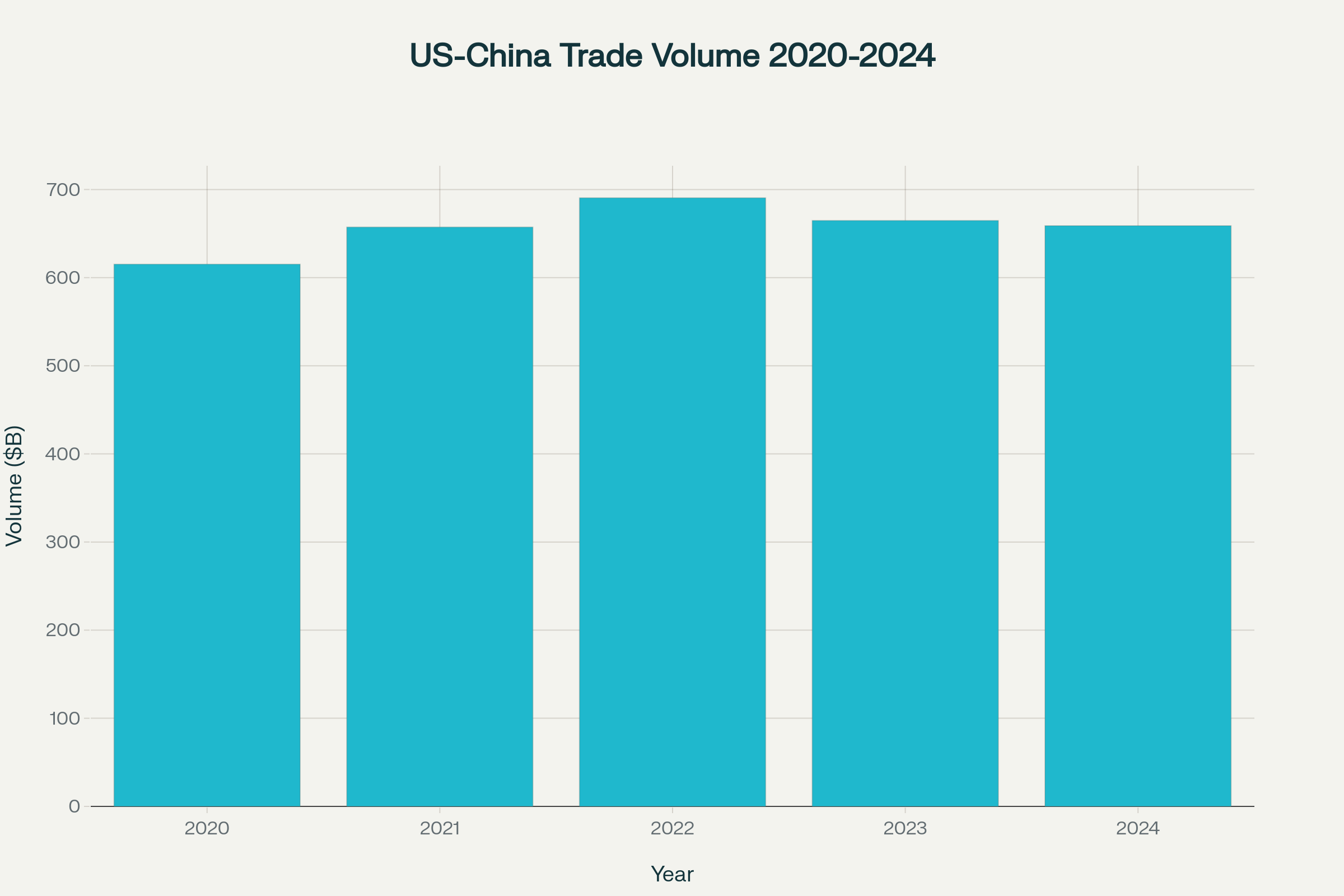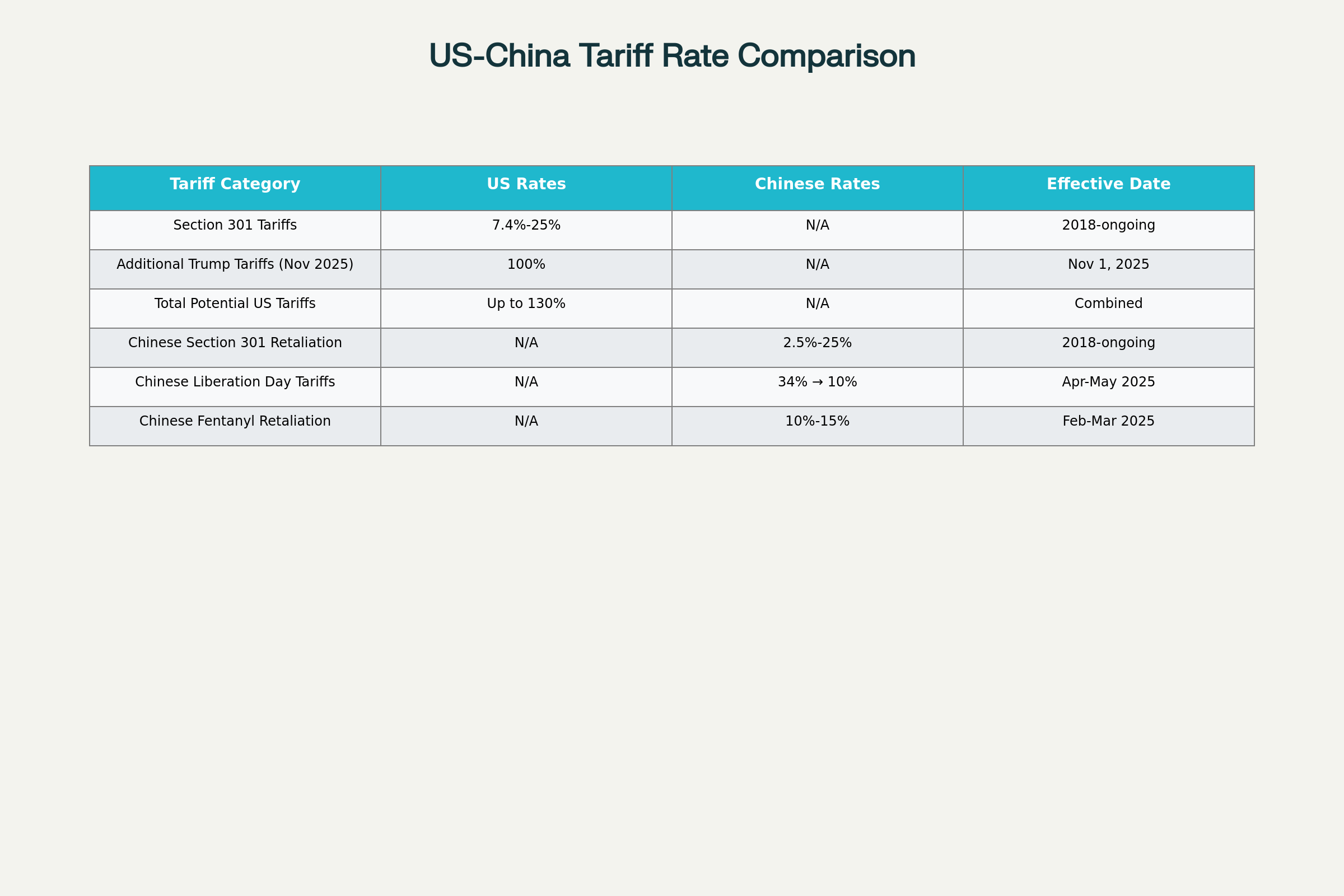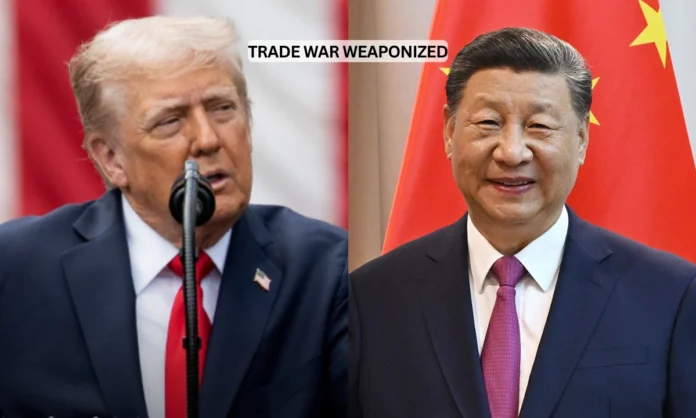Key Highlights:
- China calls on US to follow international trade rules after Trump threatens 100% tariffs on Chinese goods
- Beijing sanctions five US subsidiaries of South Korean shipbuilder Hanwha Ocean in retaliation
- Both countries implement new port fees targeting each other’s vessels, marking sharp escalation in trade tensions
The latest diplomatic confrontation between the world’s two largest economies has intensified dramatically as China calls on US and related companies to “respect facts, follow international trade rules, and stop actions that harm China’s interests” following President Donald Trump’s threat to impose a 100 percent tariff on Chinese goods. Chinese Foreign Ministry spokesperson Lin Jian issued this stern warning amid escalating trade tensions that now encompass multiple sectors including shipbuilding, rare earth minerals, and maritime logistics.
This sharp deterioration in China calls on US trade relations comes as both nations roll out tit-for-tat measures affecting global supply chains. The dispute has expanded beyond traditional trade barriers to include sanctions on third-party companies and new restrictions on critical materials, with bilateral trade volume reaching $658.9 billion in 2024.

US-China Bilateral Trade Volume (2020-2024)
China’s Strategic Retaliation Through Shipbuilding Sanctions
China calls on US diplomatic channels have been severely strained following China’s Ministry of Commerce announcement of sanctions against five US-based subsidiaries of South Korea’s Hanwha Ocean Co on October 14, 2025, in direct response to the US Section 301 investigation targeting China’s maritime, logistics, and shipbuilding industries. The sanctioned entities include Hanwha Shipping LLC, Hanwha Philly Shipyard Inc, Hanwha Ocean USA International LLC, Hanwha Shipping Holdings LLC, and HS USA Holdings Corp.
According to Order No. 6 of 2025 issued by China’s Ministry of Commerce Bureau of Security and Control, this decision complies with China’s Anti-Foreign Sanctions Law and implementing provisions. The sanctions prohibit Chinese organizations and individuals from conducting business with these entities, effectively freezing their operations within China’s economic sphere as China calls on US authorities to cease what it terms “hostile actions”.
The US Trade Representative’s Section 301 investigation, launched in April 2024, determined that China’s dominance in shipbuilding posed significant burdens to American businesses. The investigation, which included nearly 600 public comments and extensive consultations, found that Chinese policies displaced foreign firms and restricted competition in critical maritime sectors, prompting China calls on US to reconsider its approach.
| Sector | Chinese Market Share | US Response |
|---|---|---|
| Global Shipbuilding | 47.3% | Section 301 Investigation |
| Commercial Vessels | 52.1% | Tariffs up to 25% |
| Container Ships | 68.7% | Export Controls |
Port Fees Create New Maritime Trade Battlefront
The China calls on US trade dispute has escalated to unprecedented levels as both nations implemented new port fees targeting each other’s vessels starting October 14, 2025, creating unprecedented disruption in global shipping. China introduced port fees starting at 400 yuan (approximately $56) per net ton for US ships arriving at Chinese ports, with annual increases planned for the next three years.
The Chinese Transport Ministry justified these measures as a direct response to Washington’s decision to impose similar charges on Chinese ships entering American ports. Beijing characterized the US action as a violation of World Trade Organization rules and the China-US maritime transport agreement, leading to intensified China calls on US to respect international norms.
According to industry executives, these new fees are reducing the number of cargo vessels available for moving goods and threatening to increase consumer costs in both countries. Global carriers are scrambling to adapt to the new duties, with some vessels reportedly being charged as much as 4.5 million yuan, further escalating the China calls on US trade confrontation.
Rare Earth Controls Trigger 100% Tariff Threat
The current China calls on US crisis began when China expanded export controls on rare earth materials on October 9, 2025, adding five additional elements to its restricted list. The new controls cover holmium, erbium, thulium, europium, and ytterbium, supplementing seven previously restricted minerals including samarium, gadolinium, terbium, dysprosium, and lutetium.
President Trump responded immediately, announcing on October 10 that the United States would impose an additional 100 percent tariff on Chinese goods starting November 1, raising total duties to 130 percent. In his Truth Social post, Trump stated: “Based on the fact that China has taken this unprecedented position, the United States will impose a Tariff of 100 percent on China, over and above any Tariff that they are currently paying,” intensifying the China calls on US diplomatic standoff.
China’s Ministry of Commerce defended its export controls as lawful steps to refine its export management system and safeguard national security. Beijing accused the US of “double standards” and “abusing export control measures” against Chinese companies, stating that “willful threats of high tariffs are not the right way to get along with China,” as the China calls on US dialogue continued.

US-China Tariff Rates Comparison (2025)
Diplomatic Efforts Amid Escalating Economic Warfare
Despite the harsh rhetoric and punitive measures, the China calls on US diplomatic framework has shown signs of potential de-escalation as both sides indicated willingness to engage in dialogue. China agreed to hold fresh trade talks with the US “as soon as possible” following a video call between Beijing’s chief negotiator Vice Premier He Lifeng and US Treasury Secretary Scott Bessent.
President Trump acknowledged on October 17 that his proposed 100 percent tariff was “not sustainable,” describing it as an extreme measure meant to pressure Beijing ahead of a scheduled meeting with Chinese President Xi Jinping. Trump expressed optimism about upcoming talks, stating he believed “things will be fine with China,” suggesting the China calls on US tensions might be tactical.
However, China warned that the US actions have “seriously harmed” its interests and damaged the atmosphere for trade talks. The Chinese Ministry of Foreign Affairs emphasized that “the US side cannot seek talks on one hand while threatening to introduce new restrictive measures on the other,” calling for Washington to resolve disputes through mutual respect and dialogue as the China calls on US relationship faces critical juncture.
| Trade Metric | 2024 Data | Change from 2023 |
|---|---|---|
| Total Bilateral Trade | $658.9 billion | +2.6% |
| US Exports to China | $143.2 billion | -3.0% |
| US Imports from China | $438.7 billion | +2.7% |
| Trade Deficit | $295.5 billion | +5.7% |
Final Assessment
The escalating China calls on US trade dispute represents a significant shift from earlier cooperation efforts, with both nations implementing unprecedented measures that affect global supply chains and third-party countries. The expansion of restrictions to encompass maritime logistics, rare earth materials, and third-party sanctions demonstrates how China calls on US relations have evolved into comprehensive economic warfare affecting multiple sectors simultaneously.
While diplomatic channels remain open with planned meetings between senior officials, the China calls on US dynamic reflects deeper structural tensions about economic dominance and technological competition. The successful resolution of these China calls on US trade tensions will require substantial compromises from both sides, particularly given the strategic importance of the affected industries to national security and economic competitiveness.


